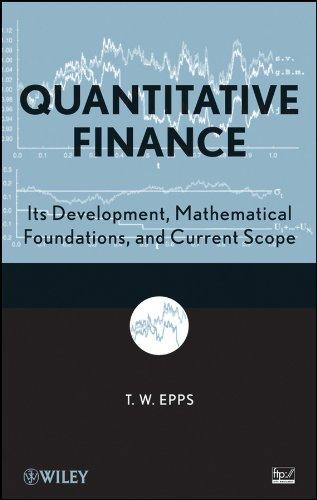Answered step by step
Verified Expert Solution
Question
1 Approved Answer
Following table reports the annual returns data for stock A, stock B, market portfolio M and risk-free rate RF during the past 12 years. Year
Following table reports the annual returns data for stock A, stock B, market portfolio M and risk-free rate RF during the past 12 years.
| Year | A % | B % | M% | RF % |
| 1 | -2.54 | 2.3 | -0.9 | 0.5 |
| 2 | 3.56 | 5.86 | 2.86 | 0.5 |
| 3 | -4.54 | -2.24 | -5.44 | 0.5 |
| 4 | 2.94 | 5.24 | 6.2 | 0.5 |
| 5 | 1.54 | -2.3 | -5.5 | 0.5 |
| 6 | 4.54 | 6.84 | 4.84 | 0.6 |
| 7 | 2.54 | 3.84 | -3.2 | 0.5 |
| 8 | 4.54 | -12.3 | -15.5 | 0.7 |
| 9 | 2.94 | 6.24 | 7.24 | 0.5 |
| 10 | 3.21 | 3.1 | 3.4 | 0.4 |
| 11 | 4.42 | 2.21 | 2.18 | 0.5 |
| 12 | 2.11 | 2.1 | 3.45 | 0.5 |
- If Mr. John owned a portfolio with 50% of stock A, 30% of stock B and 20% of market portfolio at the beginning of year 1. Calculate the arithmetic average returns, the return standard deviations, and the geometric average returns for the Mr.Johns portfolio. ( 3 marks)
- Calculate the Beta, Jensens alpha and R-squared for the Mr.Johns portfolio returns. Did Mr.John outperform the market or not during past 12 years based on the Jensens alpha.
- Calculate the Sharp ratio, Treynor ratio, and information ratio for the Mr.Johns portfolio. ( 3 marks)
Step by Step Solution
There are 3 Steps involved in it
Step: 1

Get Instant Access to Expert-Tailored Solutions
See step-by-step solutions with expert insights and AI powered tools for academic success
Step: 2

Step: 3

Ace Your Homework with AI
Get the answers you need in no time with our AI-driven, step-by-step assistance
Get Started


